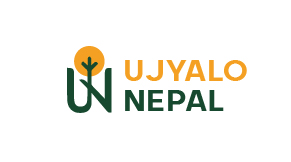Piloting Holistic Human-Elephant Coexistence Solutions in the Kangchenjunga
The project activities focused on fostering sustainable coexistence between humans and elephants in the Kangchenjunga landscape.
SPECIES AT RISK
PARTNER
ICIMOD, a unique intergovernmental institution leading the global effort to protect the pulse of the planet - the HKH - and the people, resources and culture that define it.
Elephant Conservation Action Plan
PROJECT COST
Piloting Holistic Human-Elephant Coexistence Solutions in the Kangchenjunga
Project Funder: ICIMOD Nepal Project Duration: 1st July 2024 to 31st December 2024 Project Budget: 5350000 NPR Project Location: Jhapa
The project activities focused on fostering sustainable coexistence between humans and elephants in the Kangchenjunga landscape. Targeting two wards of Mechinagar Municipality ward 1 and 4 in Jhapa District, this initiative addresses the pressing conflicts arising from elephant interactions in these areas. Both villages have experienced significant challenges due to wild elephants encroaching on agricultural land, leading to damage and community tension.
It begins with a baseline survey conducted at a project sites, collecting data on local farmers' experiences with elephants, their views on the species, and the economic losses caused by crop damage. In response to these issues, Ujyalo Nepal implemented seasonal electric fences at the sites to protect crops from elephant raids. The initiative also included training for local farmers on fence installation and maintenance, ensuring they could effectively safeguard their crops. Additionally, a training on straw mat weaving for women was organized, teaching them how to create products from agricultural waste like corn husks and straw. This skill development aimed to provide alternative income sources for local women.
Further efforts focused on boosting the local economy, including facilitating discussions on branding local products such as betel nuts and other organic goods. A company was established to manage the branding and marketing of these goods.
The report also covers the review of the Elephant Conservation Action Plan, coordinated by Mr. Ashok Bhandari, and the involvement of key stakeholders in finalizing the Elephant Conservation Action Plan (2025-2034). The training for the RRT helps them understand their roles in the community to ensure humans and elephants can coexist. An early warning system was installed to alert villagers about elephant movements, proving to be effective.
Educational programs were also conducted, including the distribution of wildlife booklets, training in elephant-related arts, and school awareness programs, to foster a positive attitude toward elephant conservation and peaceful coexistence to school children.

Project based Staff:
1
Chirayu Thapa
Program Coordinator
2
Aashish Mahat
Accountant
3
Bijayeeta Dhimal
Program Officer
Jhapa
4
Prashant Karki
Field Mobilizer
Jhapa
Project Details
Interested in Our Work?
Learn more about our projects and how you can get involved in conservation efforts.
